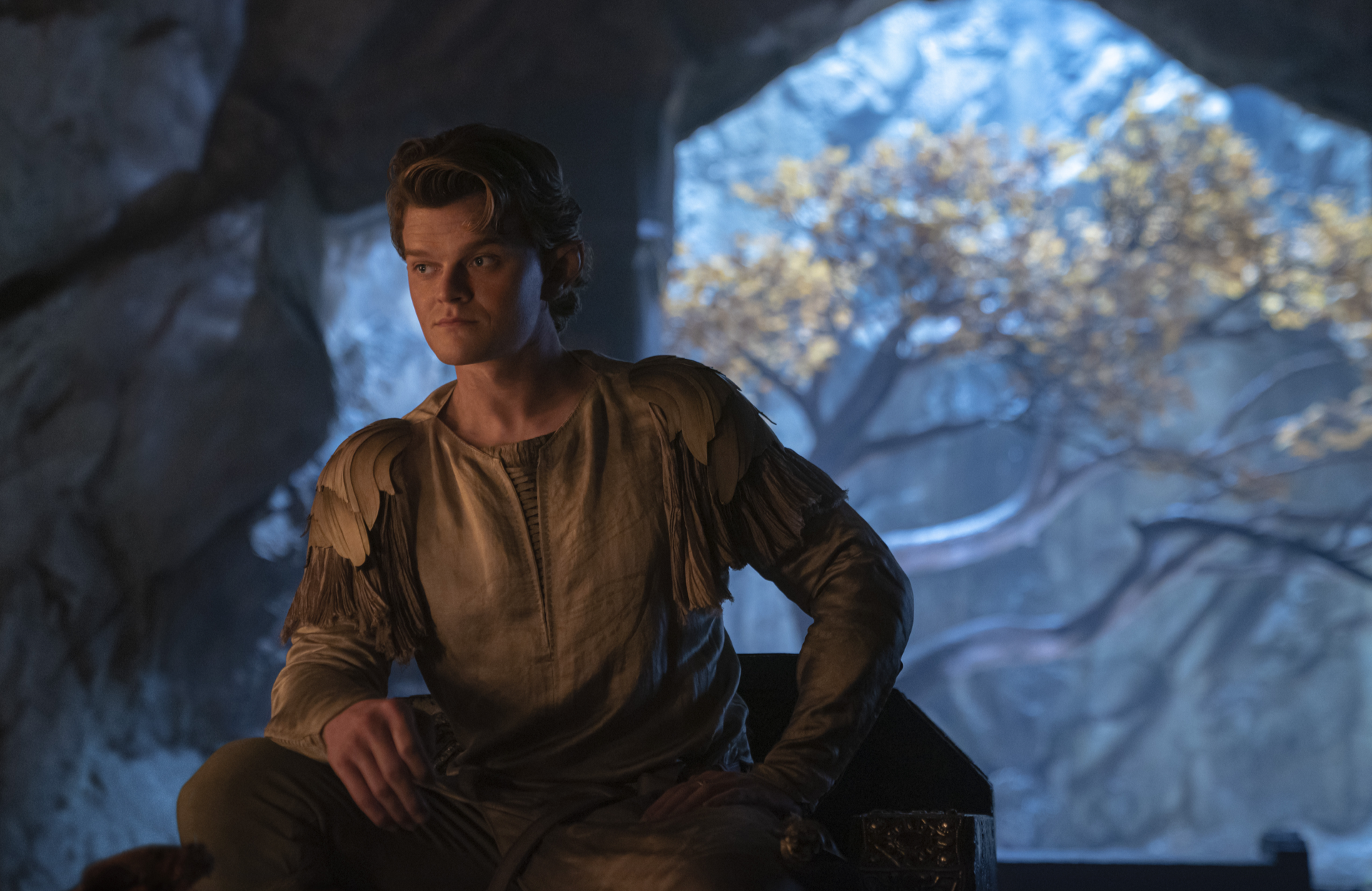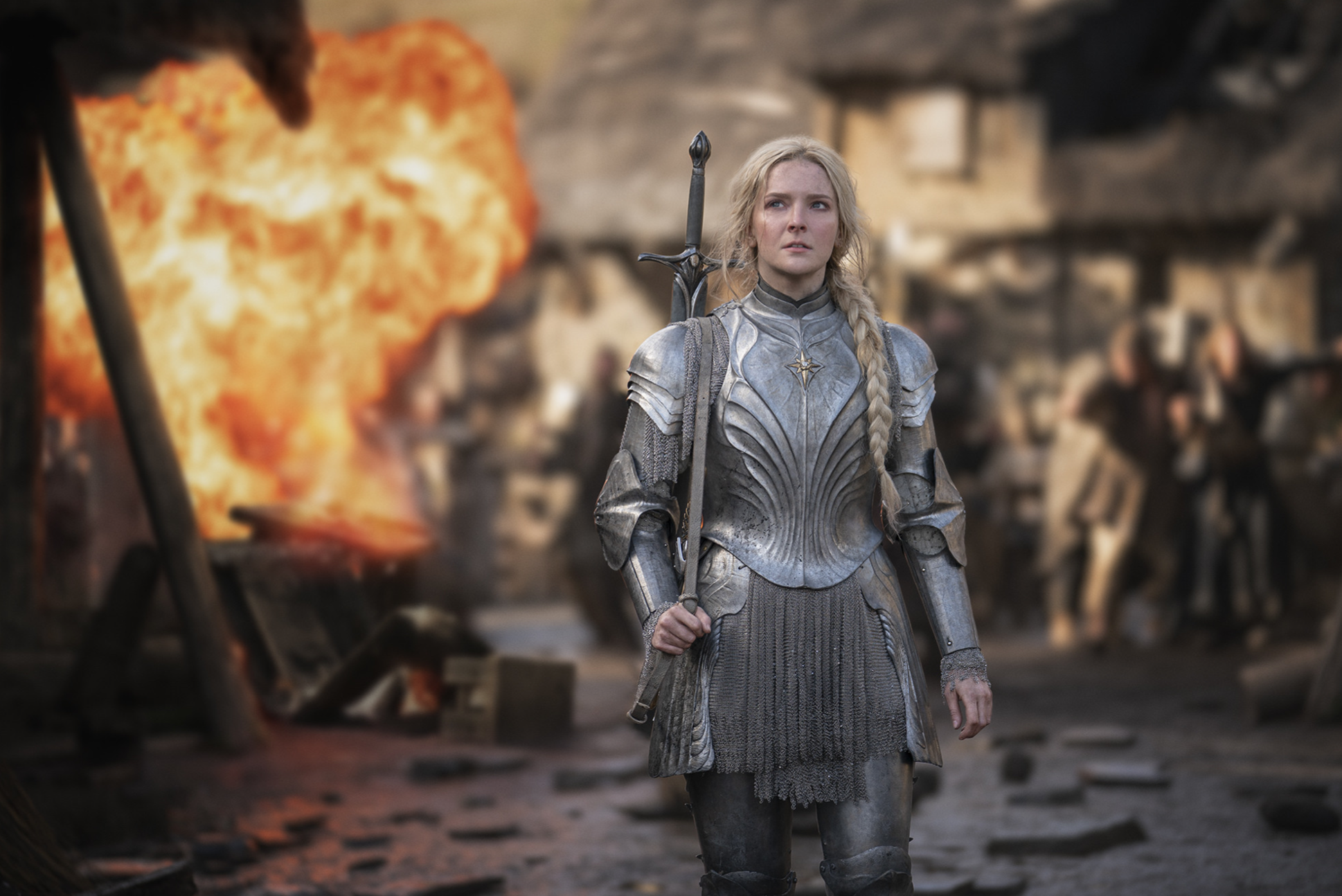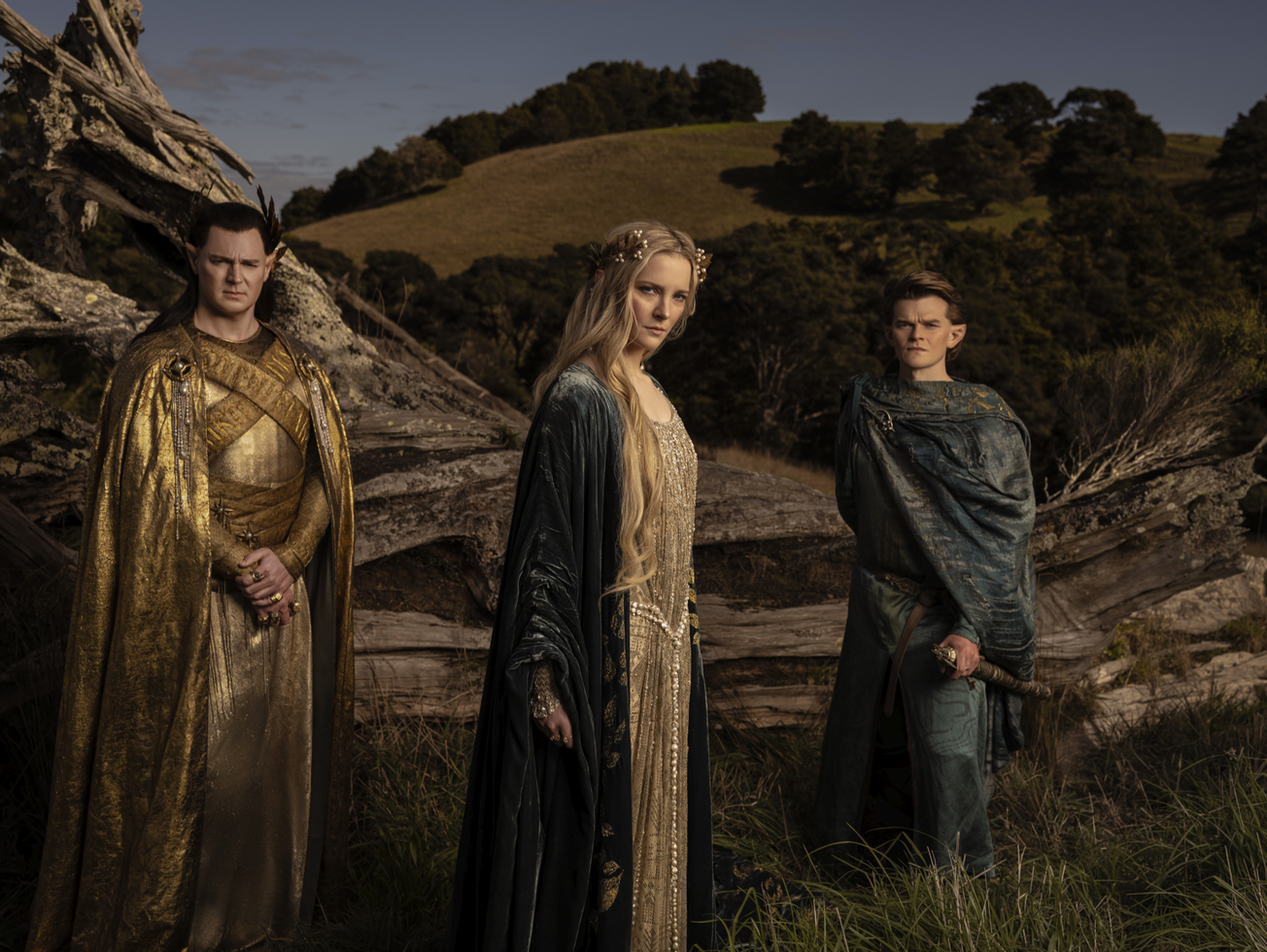By Claire Meakins, Film & Tv Critic and Subeditor
Deciding to meddle with Tolkien’s beloved Middle-Earth is something many would deem too dangerous to even contemplate. Amazon Prime, however, armed with an eye-watering budget and characteristic hubris, has stepped up to the challenge with The Lord of the Rings: Rings of Power.
This new series is set thousands of years before the events of The Hobbit and The Lord of the Rings and features an ensemble cast of both new and familiar faces. The first two episodes serve as a slow-paced introduction, attempting to explain dense lore without alienating viewers. Despite this, as only a casual fan myself, I did often have to turn to the internet to figure out who was who and what was going on. I can imagine that for newcomers to the Tolkien universe, the long names and sudden language changes would sound like incomprehensible high-fantasy babble.

The dialogue that isn’t exposition often sounds like it’s trying a little too hard to be ‘deep’. In the first episode, Galadriel’s brother, Finrod (Will Fletcher), delivers a lengthy speech on good and evil, which wouldn’t have looked out of place if it were quoted against a stock image of a sunset. Indeed, subtlety isn’t something that these two episodes deliver in general.
Vast, highly saturated landscapes dominate the screen, and while they are undoubtedly gorgeous to look at, it sometimes feels like style is prioritised over substance. Something about the big, bold scenery feels remarkably flat and generic, lacking the magic seen in previous iterations of Middle-Earth. No amount of autumnal leaves can distract from the elves not having their distinctive, luscious long hair.

This flatness extends to more than just the scenery, and it’s hard not to laugh at quite how clichéd certain moments are. The scene introducing the Harfoot community could be easily copied and pasted into any other fantasy series, with the characters being utterly forgettable. It would be tricky to call any of the performances in these two episodes ‘outstanding’, but it seems that acting is not the problem so much as the script’s ineffective characterisation is.
Perhaps most notably, Galadriel (Morfydd Clark) here is reduced to being headstrong and naive in order to fulfil the role of an action protagonist. For a character whose power didn’t come from military prowess but rather from the wisdom and an ethereal intimidating presence, having Galadriel belligerently swinging a sword removes the uniqueness of her character and turns her into a carbon copy of any other fantasy hero.

Despite being willing to change well-loved characters, originality does not seem to be one of The Rings of Power’s main concerns, with tropes filling nearly every scene. These two episodes feel more like a ‘try not to laugh challenge’ than the start of a multi-million-dollar fantasy epic.
That said, perhaps there is hope that the episodes yet to come will be able to move past these shaky beginnings. The range of plotlines established so far promise to offer something for everyone in their mixture of magic, romance, mystery, political wranglings and fantastical fight sequences.
The cinematography is stunning, and The Rings of Power definitely has the potential to deliver the best-looking Middle Earth ever seen on screen. Plus, it’s nice to see more diversity within the world of Tolkien, given previous offerings’ staggering lack of it.

All of this means that the series could become a defining piece of television with mass appeal, but only if it has the bravery to break away from cliché. Adding to a well-loved franchise was always a divisive choice and one that attracted a lot of scrutiny. It remains to be seen whether The Rings of Power becomes a success large enough to prove sceptics wrong or whether it will continue to deliver bland but safe entertainment.
Featured Image: IMDB
Watch The Lord of the Rings: Rings of Power, available on Amazon Prime every Friday.








